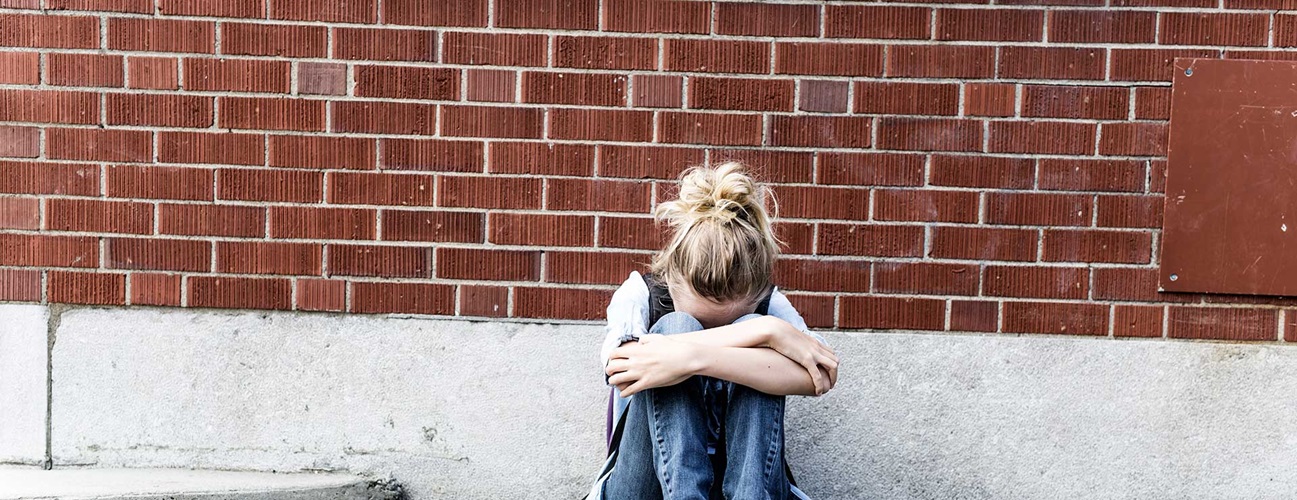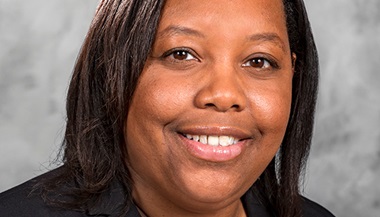Does going back to school mean going back to bullying?
The beginning of the school year brings concerns for many children and parents. Good grades, getting enough sleep and getting along with teachers and other students are all important. But one of the most concerning issues, as noted by Johns Hopkins Children’s Center mental health counselor Jami Margolis, continues to be bullying. It can lead to low self-esteem, health problems, poor grades and even suicidal thoughts. Margolis answers some common questions about bullying at school and offers tips for parents of children who are bullied or are bullies.

What is bullying?
While laws may vary from state to state, the definition of bullying accepted by many mental health professionals is “physical or verbal aggression that is repeated over a period of time and involves an imbalance of power.”
How common is bullying today?
Bullying has been around for a long time. Unfortunately, now it has reached epidemic levels in schools, especially due to social media. At Johns Hopkins, we usually start seeing cases of bullying in November and December, after kids have settled into their cliques.
Who is the typical bullying victim?
Anyone can be bullied. However, children who are socially different, have lower peer acceptance or who are perceived as weaker are more likely to get bullied. Although nowadays kids feel more open about speaking out, not everybody is willing to do that. Those are the kids we see with depression-like symptoms. When they come to our clinic, it’s often uncovered that they’re getting picked on at school.
What are the different types of bullying?
There are thought to be four types of bullying:
- Physical bullying involves but is not limited to hitting, kicking, pushing or otherwise fighting others.
- Verbal bullying refers to the use or misuse of words to harm others through name-calling, insults or harsh teasing.
- Relational bullying focuses on excluding one or more people from a peer group.
- Reactive bullying is when a person responds to being a former victim by bullying others.
- Cyberbullying is willful and repeated bullying behavior that involves electronic technology like gaming devices, the internet, social media, emails, blogs, cell phones, etc.
What are some examples of cyberbullying?
Cyberbullying can take many forms, including but not limited to:
- Sending mean or threatening emails, texts, tweets or IMs
- Tricking someone into revealing personal or embarrassing information
- Hacking into someone's accounts and being cruel while posing as that person
- Creating websites to embarrass or make fun of someone
There are a variety of consequences of cyberbullying for the bully, ranging from being suspended or expelled from school and sports teams to legal recourse and potential criminal charges.
What if the child is bullied on social media?
While bullying itself is as old as time, the tools of the digital age often escalate the problem exponentially. Now some bullying victims have their horrific experiences plastered all over the internet. Not only is the child a victim in his or her personal life, but the child also may have to face the issue publicly and be harassed about it. Children have made attempts on their lives as a result of social media bullying. If this happens in your family, consider filing a police report and pressing charges.
What are children feeling when bullied?
They feel deflated and demoralized, their self-esteem plummets and they feel like they can’t tell anybody. They fear retaliation for saying or doing anything. Interestingly, some of these children become bullies themselves. They rationalize that if they don’t want to be a victim, they have to become a part of the group. So they become aggressive, which leads to suspensions, expulsions and failing grades.
What do bullied children need?
They need support from both adults and peers. They need to be able to talk about their experiences and feelings. They are looking for a sense of belonging and being safe, as well as support in not blaming themselves for the bullying. They also want to know that there are consequences for the bullies.
How do you counsel victims of bullying?
We talk about how they should stand up for themselves and how to be good friends, and how difficult both of these things can be. We work with parents, school administrators and teachers to help bullied children feel less isolated. We help students find ways to be safe by encouraging them to stay in groups.
We also encourage kids who are bullied to use their parents as advocates. Each state department of education has bullying and harassment forms parents can fill out and submit to their school. By law, the school has to conduct an investigation and provide feedback. We also identify advocates and other resources in the community.
What can parents do to stop bullying?
You can help your child by remaining calm and supportive and reassuring them that they are in no way to blame for the victimization. Keeping an open dialogue can go a long way in helping the victim of bullying feel comfortable to talk about it.
You should also be vigilant and pay attention to changes in your child’s personality. If your son or daughter has always been happy and extroverted and all of a sudden they hide in their room and don’t want to talk, then something could be wrong. First, let them know that it’s safe to talk and the conversation will stay between the two of you. If you need to go to the school, do so anonymously and make sure the child is not harmed in any way.
What advice can parents give to their kids about bullying?
Teach your children safety strategies, such as walking away, going to a teacher, coach or other safe adult or finding a safe public place. Nurture your child’s self-esteem and encourage them to report bullying to you, teachers, coaches or school administrators.
Should parents engage the bully’s family?
It’s best not to engage the family and instead report incidents of bullying to the school administration so that the school can take action and conduct a proper investigation. The school will then take an appropriate action against the bully, whether it’s peer mediation, detention, suspension or expulsion.
Any advice for the bully’s parents?
Be firm, stress that bullying is never okay and set limits on aggressive behavior. Remember to act as a role model and use nonphysical discipline.
What can schools do about bullying?
It can be a good idea for schools to create an antibullying provision in their social-psychological curriculum, in which students sign off on the discipline code of ethics as an enforceable offense. Schools should have zero tolerance for bullying: If you bully we will suspend you, and if you’re caught again, you can be expelled.






